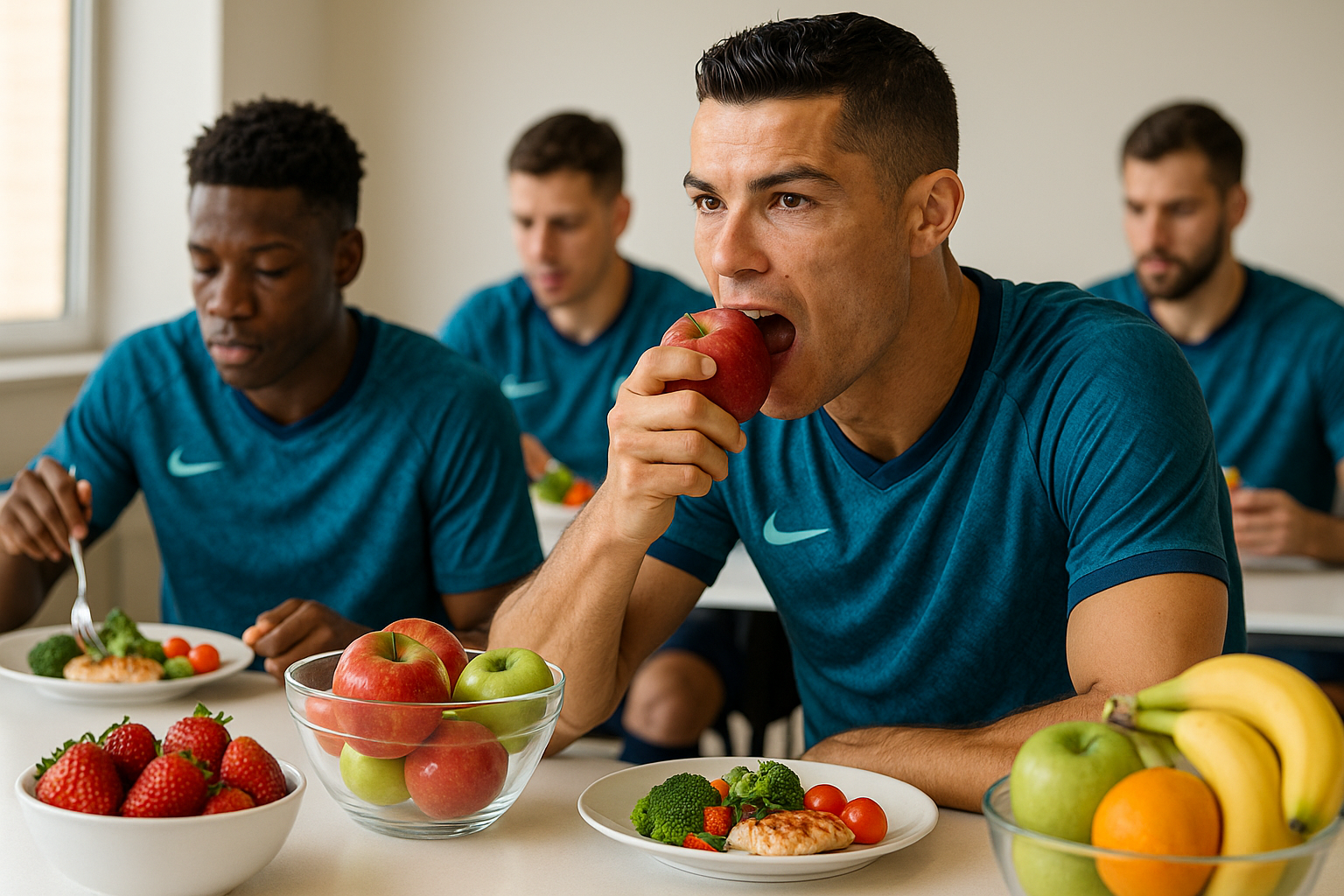“Fuel like a pro!” isn’t just a marketing line. For footballers, what they eat on match day can make or break their performance. It’s not about fancy diets, it’s about timing, energy, and smart choices.
On match day, football players follow a carefully structured diet to optimize energy, performance, and recovery. Based on insights from sports nutritionists and typical practices, here’s what they generally eat:
Breakfast (4-5 hours before kick-off):
Players start with a meal high in complex carbohydrates for sustained energy and moderate in protein. Common choices include:
- Porridge or quinoa porridge with semi-skimmed milk (rich in calcium for bone health).
- Eggs (e.g., poached or scrambled) with wholemeal toast for protein and carbs.
- A banana or fruit for quick-digesting carbs and vitamins.
They avoid heavy, fibrous foods to prevent bloating—some even skip high-fiber meals if they feel nervous, as digestion can be slower under stress.
Pre-Match Meal (2-3 hours before kick-off):
This meal focuses on topping up glycogen stores with easily digestible carbs and a bit of protein, while keeping fat and fiber low to avoid stomach issues. Examples include:
- Whole grain pasta or rice with grilled chicken or salmon (no red meat, as it digests slower).
- Mashed potatoes with steamed veggies like zucchini.
- Some players might have a small fruit-based dessert, like yogurt with berries, for antioxidants.
Hydration is key—players drink water or diluted fruit juice (50% juice, 50% water, with a pinch of salt) to pre-hydrate.
During the Match (Half-Time):
Players often consume quick-energy snacks with 30-60g of carbs, such as:
- Energy gels or sports drinks for fast-digesting carbs and electrolytes.
- A banana or a handful of raisins for natural sugars.
Some, like attackers who sprint more, might snack on cereal-based energy bars to fuel high-intensity bursts.
Post-Match (Recovery):
Immediately after the game, the focus shifts to muscle recovery and glycogen replenishment. Players typically have:
- A protein shake or flavored milk (e.g., Promax) with fruit for carbs, protein, and antioxidants.
- A meal like sushi (e.g., salmon for omega-3s and protein) or turkey chili with kidney beans for protein and carbs.
Some might indulge in a treat meal, like a burger and chips, though this varies by preference and isn’t the norm for all.
Throughout the Day:
Hydration is constant—players sip water and electrolyte drinks to combat dehydration, especially since even a 1% drop can impair decision-making. They avoid dairy like cream or cheese, as it can cause discomfort, and steer clear of fatty or experimental foods to prevent digestive issues.
This approach ensures players have the energy for 90+ minutes of intense play, where they burn 1,000-1,500 calories, while supporting recovery for the next session. Individual preferences and positions (e.g., midfielders needing more carbs for longer distances) can tweak this plan.
Disclaimer
The nutritional information in this article is for general educational and informational purposes only. It is based on publicly available data, interviews, and common practices among professional athletes. Individual dietary needs vary based on factors such as age, health condition, level of training, and medical history.
Always consult a certified sports nutritionist, dietitian, or medical professional before making any significant changes to your diet or adopting an athlete-style meal plan.

